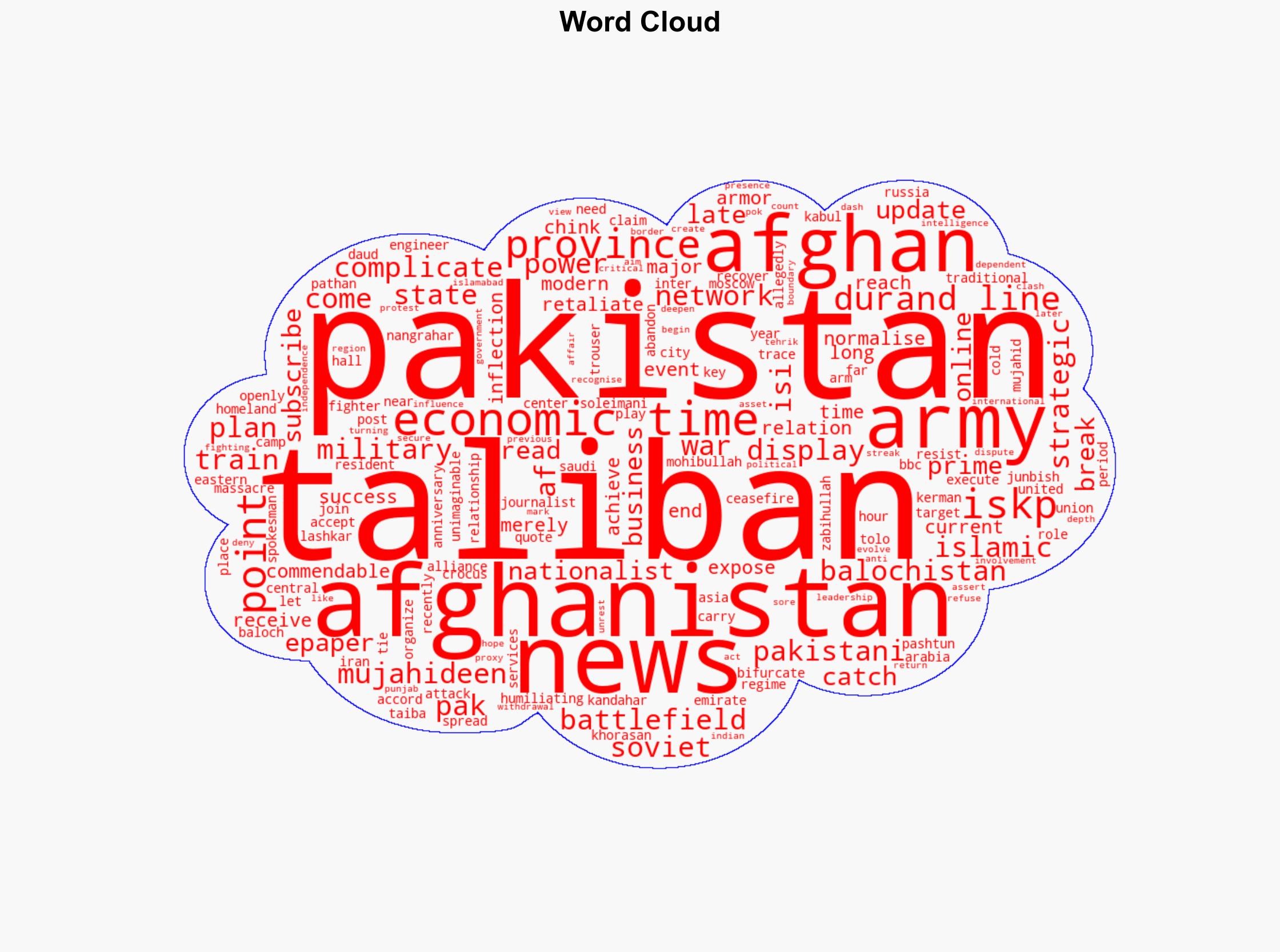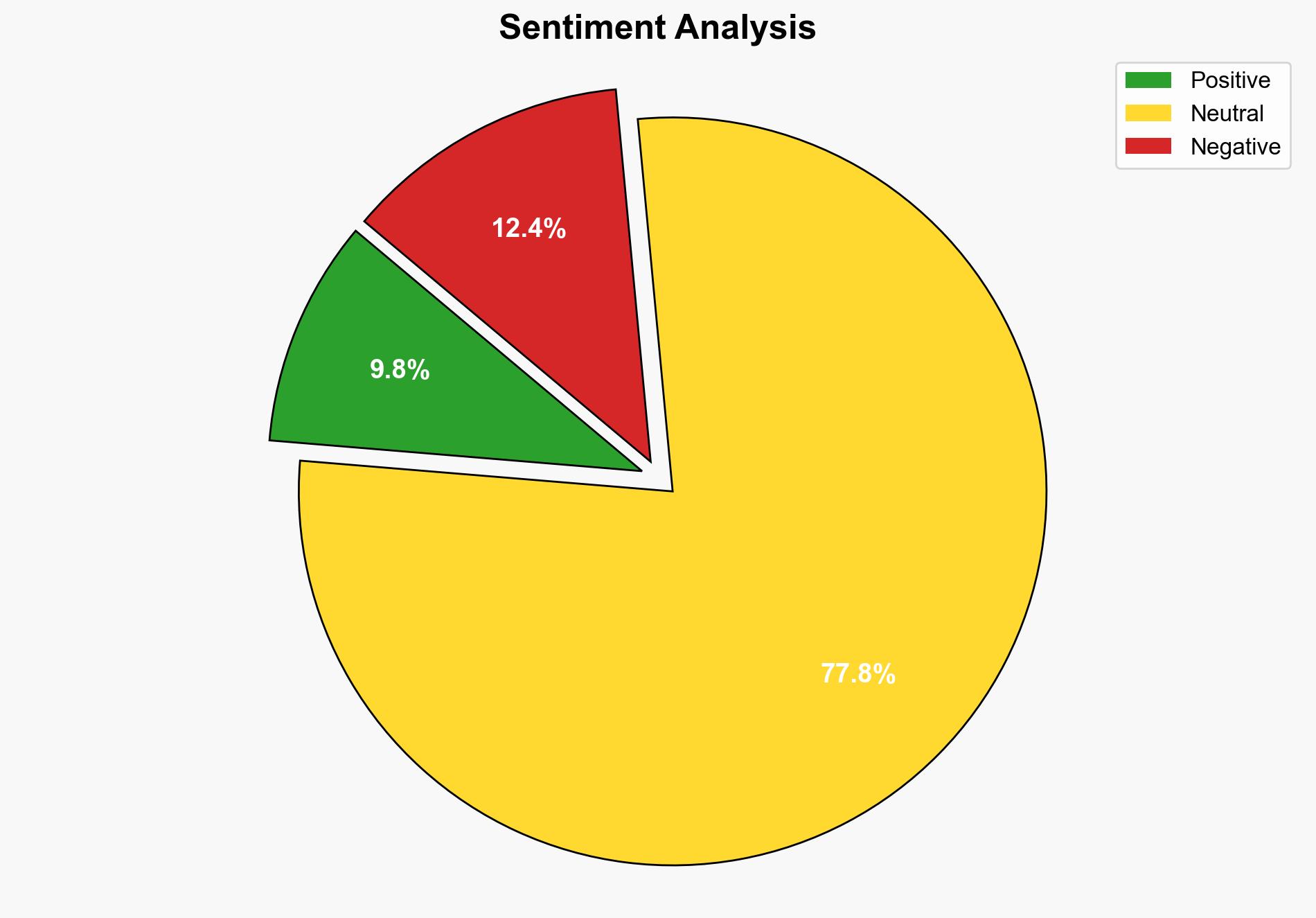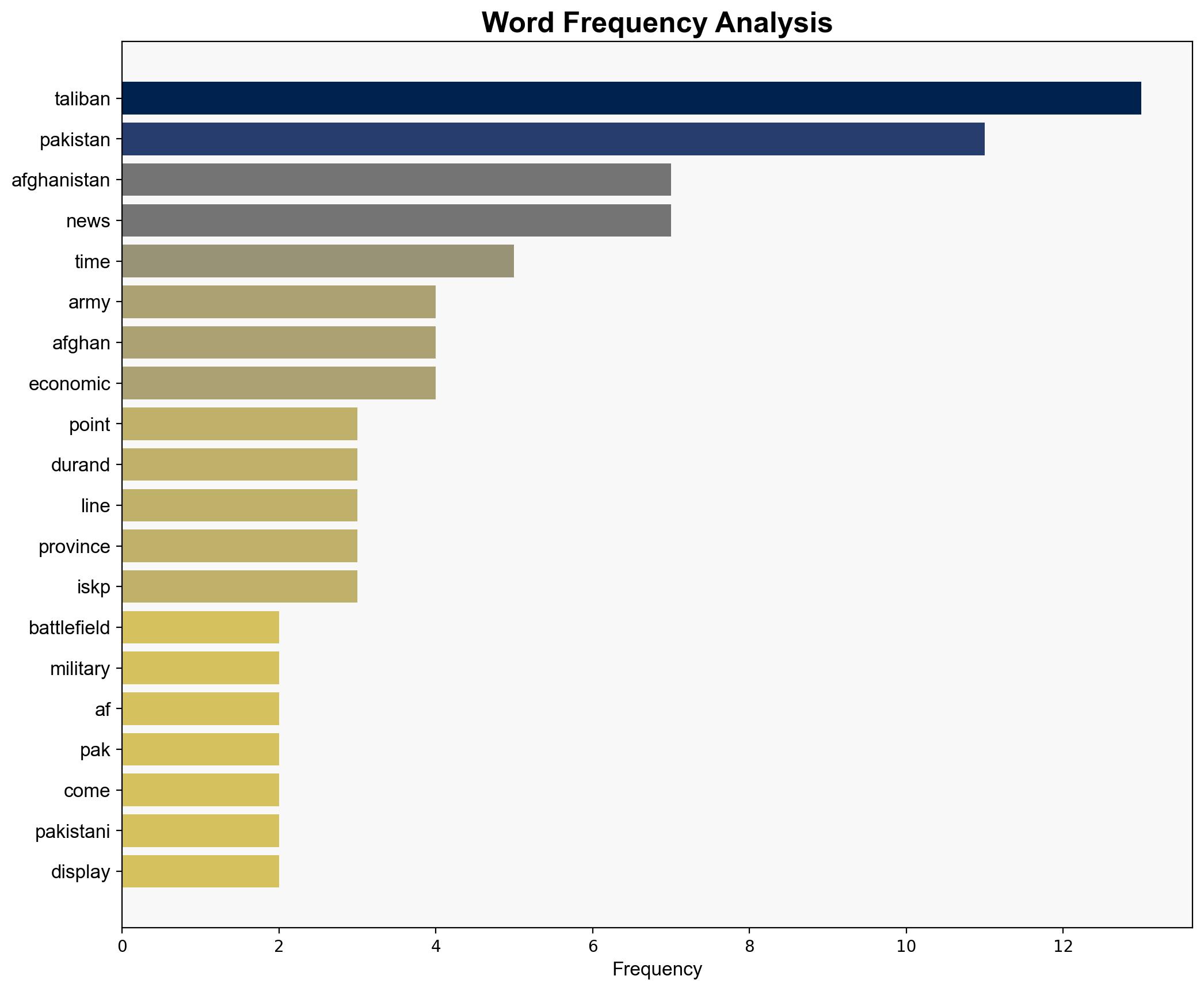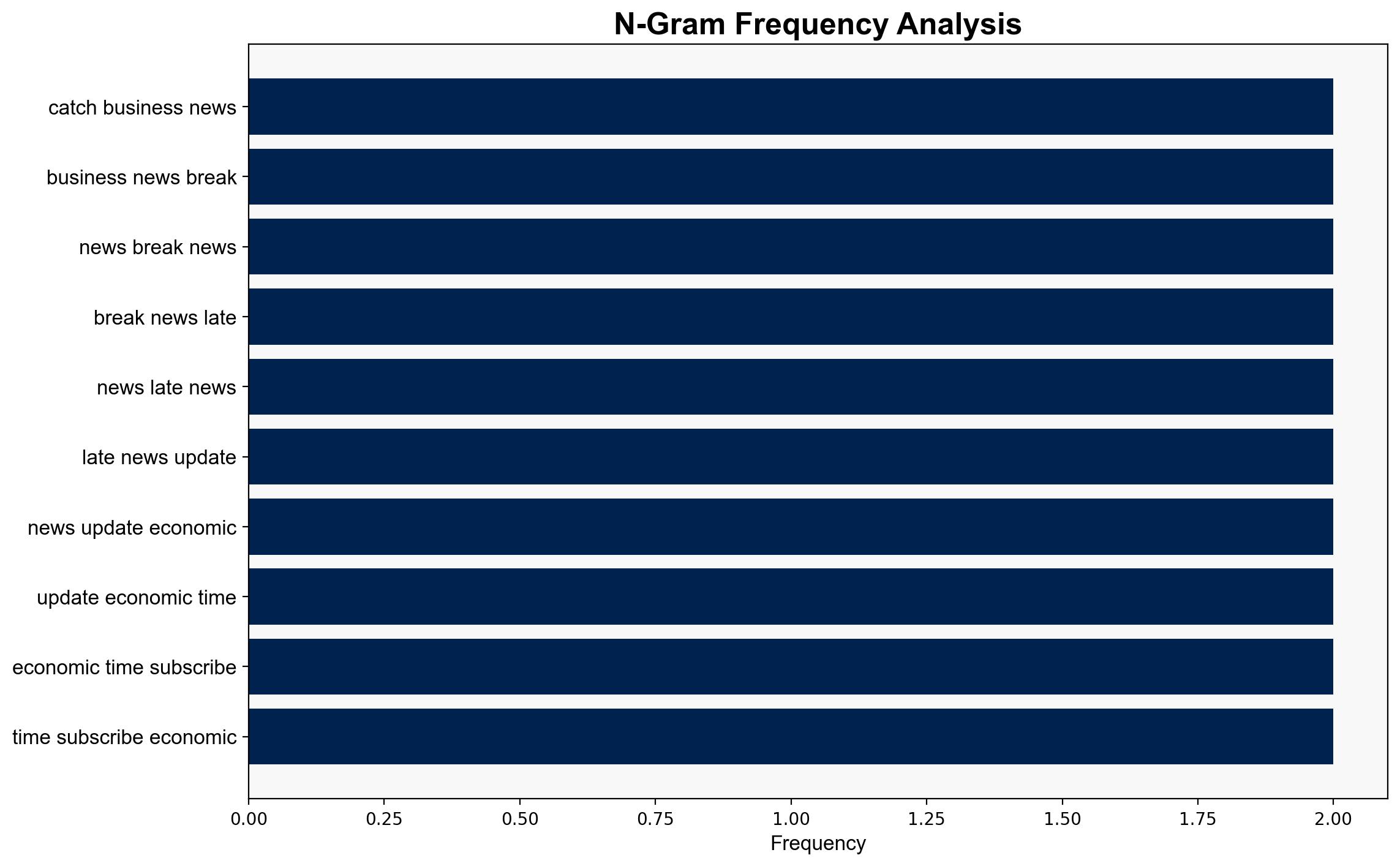Af-Pak relations may not normalise for a long time to come – The Times of India
Published on: 2025-10-16
Intelligence Report: Af-Pak relations may not normalise for a long time to come – The Times of India
1. BLUF (Bottom Line Up Front)
The most supported hypothesis is that Af-Pak relations will remain strained due to the Taliban’s increasing independence and nationalist tendencies, which challenge Pakistan’s strategic interests. Confidence level: Moderate. It is recommended to monitor Taliban’s internal dynamics and regional alliances to anticipate shifts in power that could affect regional stability.
2. Competing Hypotheses
1. **Hypothesis A**: The Taliban’s growing independence and nationalist stance will continue to strain Af-Pak relations, as they refuse to act as Pakistan’s proxy and assert control over disputed territories like the Durand Line.
2. **Hypothesis B**: Despite current tensions, Af-Pak relations will stabilize as mutual interests in countering common threats like ISKP and maintaining regional security will force cooperation.
Using ACH 2.0, Hypothesis A is better supported by evidence of the Taliban’s actions and statements rejecting Pakistani influence and asserting territorial claims. Hypothesis B lacks strong evidence of effective cooperation mechanisms overcoming current disputes.
3. Key Assumptions and Red Flags
– **Assumptions**: It is assumed that the Taliban’s nationalist tendencies will outweigh any pragmatic need for cooperation with Pakistan. Another assumption is that Pakistan will continue to view the Taliban as a strategic asset despite current tensions.
– **Red Flags**: The potential for misinterpretation of Taliban’s actions as purely nationalist rather than strategic. Lack of reliable intelligence on internal Taliban dynamics and decision-making processes.
4. Implications and Strategic Risks
– **Geopolitical Risks**: Continued tension could lead to increased border skirmishes and destabilize the region, affecting neighboring countries.
– **Economic Risks**: Strained relations may impact cross-border trade and economic cooperation, further isolating Afghanistan economically.
– **Security Risks**: The presence of ISKP and other militant groups could exploit the rift, increasing terrorist activities in the region.
5. Recommendations and Outlook
- Enhance intelligence gathering on Taliban’s internal politics to better predict their strategic moves.
- Facilitate dialogue between Afghanistan and Pakistan focusing on shared security concerns to build trust.
- Scenario Projections:
- **Best Case**: Improved relations through diplomatic engagement and shared security initiatives.
- **Worst Case**: Escalation of border conflicts leading to broader regional instability.
- **Most Likely**: Prolonged tension with intermittent cooperation on specific issues like counter-terrorism.
6. Key Individuals and Entities
– Zabihullah Mujahid (Taliban spokesman)
– Daud Junbish (Afghan journalist)
– Mohibullah (Resident of Kandahar)
7. Thematic Tags
national security threats, cybersecurity, counter-terrorism, regional focus




